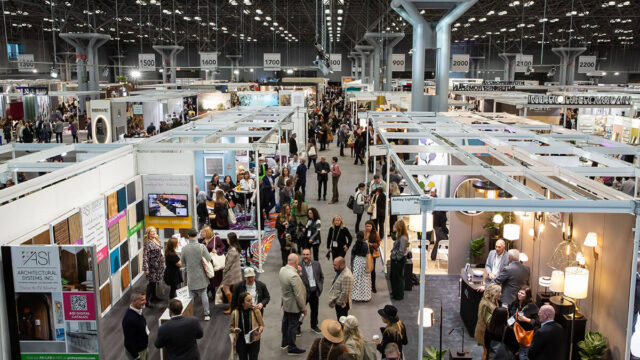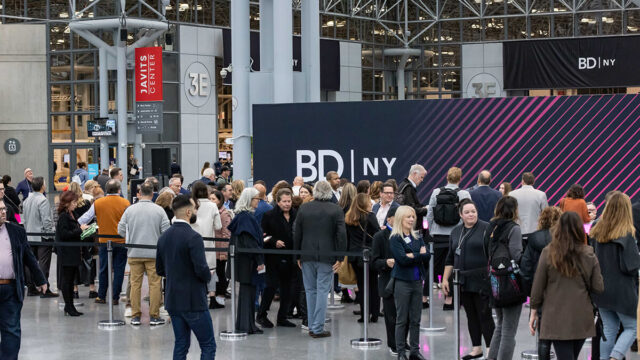The hospitality industry will forever be altered by the COVID-19 pandemic, and architecture and design firms will have to change their ideas of what a hotel will include to adapt to the post-pandemic guest. That was the message conveyed during the webinar “The Boutique Hotel’s Crisis Guide to Design & Architecture,” produced by the Boutique Lifestyle Leaders Association (BLLA).
Panelists Andrew Fay, co-founder/president of The Gettys Group, and Tom Ito, principal/global hospitality practice area leader at Gensler, along with moderator Amy Jakubowski, founder of AEJ Creative, were all isolated in home locations as they discussed topics such as what hotels will be like coming out of the pandemic, and how architects and designers can move forward once the crisis is over.
Both panelists agreed that an emphasis must be placed on making guests comfortable to come back to hotels once it’s safe to do so.
Ito pointed to safe zones, where guests can go through and get cleaned, sanitized and tested, and if some are sick they can be pulled aside and isolated. “So, we’ll have that screening so that when the guests are among other people, they feel safer and more confident,” he said.
Fay thinks that guestrooms will lose most of the extraneous objects sitting around in order to limit the amount of surfaces, and also believes that some health and wellness elements will be added because guests “may not be as comfortable and feeling safe and secure going to public gyms and those kind of facilities in hotels.”
Ito noted that it’s human nature to be social and people will always want to be together, but the way guests socialize in hotels may change.
“I think that there are going to be some changes in the way occupancies are done, and we’re going to see smaller occupancies in the public and social spaces,” he said. “We may just have to connect in a much different way. Those communal tables may not be so communal. But there’s going to be opportunities for great social spaces with an eye toward social distancing and health.”
Fay agreed with his co-panelist and added, “As we think about the meetings business, maybe people will meet differently. Instead of sending 50 people to the meeting, maybe five or 10 will be sent and the other 40 will connect digitally. So, there’ll be that human interaction and connection among the group that’s together and then others will join.”
Jakubowski brought up the point that smaller, independent and boutique hotels will have an advantage coming out of the pandemic over large, branded properties. Ito replied, “The smaller ones are more flexible to create a catered experience because they have less of the operations to deal with, and they can actually be more personal with their guests.”
He continued, “I also think that there’s an opportunity for these smaller hotels to really be more community-focused and engage with their communities to bring them in and use that as a vehicle to kind of create a sense of belonging.”
However, Fay sees a challenge ahead for the boutique and independents. “In these times, people will more likely find safe haven in the large, global brands that can articulate their cleanliness standards and cleaning specifications and protocols,” he said. “That’s a more difficult message to be communicated from the boutique and independent sectors.
“Loyalty will also come to the fore. I think we’re going to see a lot of redemptions from the loyalty programs and points,” he continued. “That is an interesting conundrum for the boutique sector. On the bright side, there may well also be a shift to more of this concept of shopping locally and more environmentally friendly approaches, which is certainly at the forefront in the boutique sector.”
Focusing on the agricultural and design processes, there have been some positives when it comes to changing the way things are done.
“What we’re learning is that we are moving seamlessly because of the digital interface of our systems, and we are actually able to meet with our clients without having to travel across the country,” said Ito. “We’re finding solutions of how to deal with and work processes differently. That’s really going to improve our process to be more efficient.”
“Many of the design personnel sadly are on furlough, so we’re trying to figure out all sorts of workarounds in the process that we have to keep projects moving forward,” said Fay. “There’s a lot of creativity coming from the design world and creating experiences for guests from the operational world.”
Both executives are optimistic that the hospitality industry will be ready to move full speed ahead once the pandemic is over.
“We’ve got projects that are under construction, and they are moving and not stopping because they are in cities that have not been mandated to stop construction. We’re also seeing some projects being delayed or slowed down, but not stopped. The other thing that we’re seeing is that there is a lot of activity going on around the world right now,” said Ito. “We are in the situation right now, but we are going to get out of it, and when those hotels open, they’re going to be competitive and really active. It’s going to be great to have a drink at some cool rooftop bar six feet away from somebody, but drinking together and hopefully after a big hug,”
“We’re certainly seeing some clients that are telling us to pump the brakes on projects, but we are also seeing others that are saying, ‘Hit the gas, baby!’ A lot of people are looking at this as a great opportunity to do renovations because they believe they’re going to displace way less business because the hotels are running incredibly low occupancies,” said Fay. “It’s also a great time for doing planning, and the underlying sentiment from the developer community is they are going to be able to buy these projects out more efficiently from a construction point of view and also from an FF&E and OS&E standpoint.”
He continued, “There’s a lot of business still going on, which we’re all so grateful for. Our job is to make people feel great. If we make our team members feel great, if our clients feel great and our clients’ guests feel great, then well done, mission accomplished and everything falls into place. We often quote Maya Angelou, and to paraphrase her, ‘People won’t remember what you said or what you did, but they will remember how you made them feel.’ Now is the time that we all need to just be reaching out, helping, sharing, doing and making people feel great because this will be behind us sometime soon.”




